News & Stories
2018
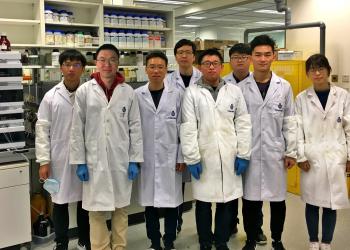
News
HKUST Scientists Find New Way to Produce Chiral Molecules which may Bring Safer and More Affordable Medicine
A research team from the Hong Kong University of Science and Technology (HKUST) has discovered a more efficient and eco-friendly way to produce a family of chiral molecules, which would potentially bring down the cost of chiral medicine and make them more accessible to all.
Over half of the approved drugs now in use in the world are chiral, which treats a wide range of conditions including cardiovascular, respiratory and gastrointestinal diseases. Many chiral drugs are top sellers including high-cholesterol medicine Lipitor, and antibiotic Amoxicillin. But production of chiral drugs are difficult and costly, as the production process is complicated and requires rare and expensive raw materials in general.
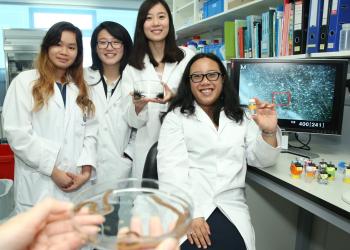
News
HKUST Researchers Identify Irreversible Adverse Effects of Microbeads on Marine Animals’ Growth and Development
A research team at the Hong Kong University of Science and Technology (HKUST) has demonstrated that the growth and development of two marine invertebrates – the pollution-tolerant slipper limpets and the commercially-harvested bristle worms (a common fish bait which recycles nutrients in the ecosystem) – are prone to suffer irreversible damage under exposure to high concentration of microbeads.
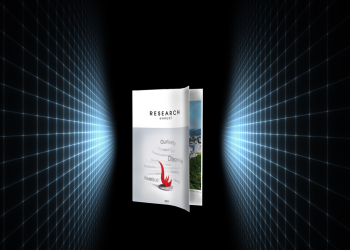
News
Research@HKUST Highlights Our World-Class Status
In our quarter century as a top academic institution, we have embarked upon an extraordinary journey in research. To this end, Research@HKUST is a must read for those seeking to learn more about the latest developments in our mission.
From structural biology, to urban sustainability, humanising robots, big data, disruptive innovation, and demystifying China’s finance, HKUST has demonstrated its research breadth in addressing global and societal challenges. Indeed, HKUST topped the most recent Research Assessment Exercise by the University Grants Committee (UGC) in Hong Kong, with 70 percent of HKUST’s submissions rated either “world leading” (four star) or “internationally excellent” (three star).
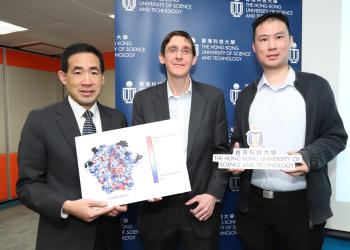
News
HKUST Researchers Discover Fitness Landscape of HIV Envelope Protein That May Help Vaccine Development
An international multi-disciplinary research team led by scientists at the Hong Kong University of Science and Technology (HKUST) has discovered for the first time a computational framework that could map out the fitness landscape of a crucial protein in the human immunodeficiency virus (HIV), potentially paving the way for rational design of a vaccine that may force the deadly virus to mutate into forms that lead to its demise.
Despite significant advances in medicine, an effective vaccine for HIV is still not available, although recent hope has emerged through the discovery of antibodies capable of neutralizing diverse HIV. The virus, however, can still evade known broadly neutralizing antibody responses via mutational pathways, which makes it all the more difficult to design an effective solution.
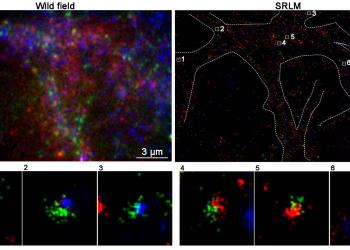
News
HKUST Scientists Reveal How Human Brains Keep Balance
An interdisciplinary team of scientists from The Hong Kong University of Science and Technology (HKUST) has discovered the mechanism of how human brains turn on and off neuronal activities, providing an important foundation to understand a wide range of neurologic conditions such as epilepsy, Parkinson's disease and ataxia-telangiectasia diseases.
“As with all things in life, healthy brain function depends on a balance of neuronal activities. We think of our brains as active - moving a leg and saying a word are all "active" events, but it is just as important that our brains be able to stop these actions,” said Cheng Aifang, a postgraduate student from the Division of Life Science who made the discovery under the guidance of the division’s head and Chair Professor Karl Herrup. “Yet it was not clear how our brains actually perform this go/stop function until now.”
2017
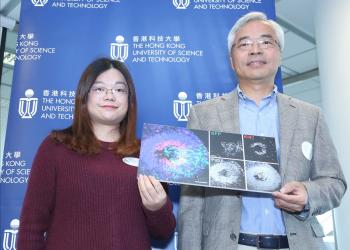
News
Awards-winning HKUST Neuroscientist Discovers Mechanism of Schizophrenia
A research team led by awards-winning neuroscientist and structural biologist Prof Zhang Mingjie of the Hong Kong University of Science and Technology (HKUST) has recently reached a breakthrough unveiling the fundamental mechanism that causes schizophrenia and other serious psychiatric conditions. Such discovery may potentially lead to the development of new treatments and drugs for the mental disorders. At present, there are about 40,000 diagnosed schizophrenic patients in Hong Kong [1].
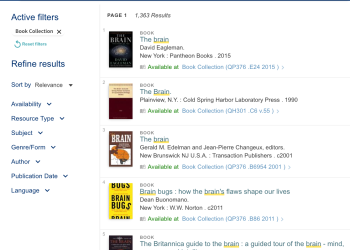
News
An Updated Library Catalog The New PowerSearch
PowerSearch got a new look and new functions this summer. Not only at HKUST, but at all 8 UGC-funded university libraries (known as JULAC) as well. We have all moved onto one single online platform for you to find, access, retrieve, and request resources from the 8 UGC libraries. The aggregate collection of materials from all JULAC Libraries is known as HKALL.
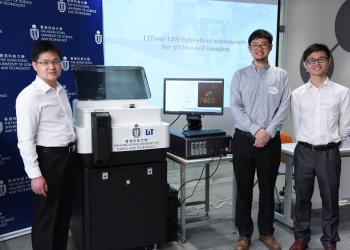
News
HKUST Discovers New Technology to Capture Live Cell Images Opening New Possibilities to the Study of Cell Biology
Researchers at The Hong Kong University of Science and Technology (HKUST) have developed a new generation of microscope, which not only could capture 3D live cell videos, but the resulted images are also of much higher quality, greatly enhancing the accuracy and the scope of research on cell biology.
While an existing confocal microscope can also capture 3D bio-images, the laser light hitting on the sample is typically one million times that of summer sunlight, such intense light exposure inevitably disrupts cell activities and eventually kills the cell, posing limits to the study of cell biology.








